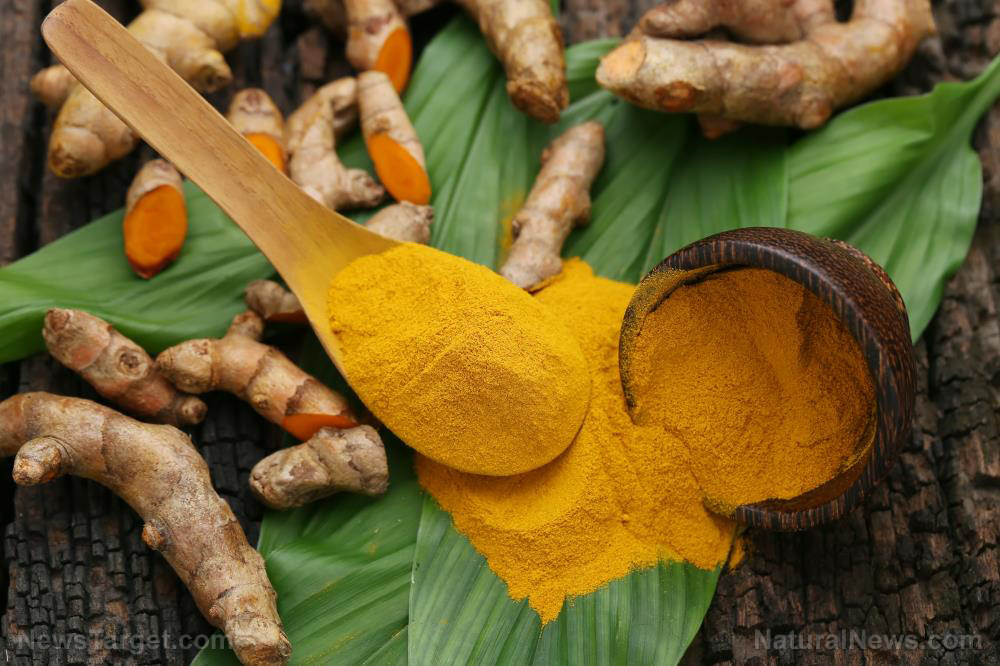by Zoey Sky
The human body protects itself against infections and wounds via a bodily function called inflammation. However, various conditions can cause this condition to remain elevated, which can lead to tissue damage. Thankfully, herbal remedies like ginger and turmeric can naturally reduce inflammation.
There are different non-steroidal anti-inflammatory drugs (NSAIDs) that can help minimize inflammation in the body. However, they aren’t 100 percent effective. These drugs are also associated with many side effects, such as:
- Appetite loss
- Constipation
- Diarrhea
- Dizziness
- Drowsiness
- Headache
- Nausea
- Rash
- Vomiting
NSAIDs can also cause severe side effects like bleeding, kidney failure, and ulcers.
Science-backed benefits of anti-inflammatory herbs
Instead of risking your health with NSAIDs, you can take herbal remedies that contain natural anti-inflammatory compounds.
Ginger
Ginger (Zingiber officinale) is a tropical plant that is commonly used in traditional medicine because of its anti-inflammatory properties. According to a study published in the journal Pain Medicine, many of ginger’s constituents can reduce the production of cytokines and the activity of cyclooxygenase enzymes that promote inflammation. Ginger’s anti-inflammatory can also help address some conditions, like arthritis and pain.
You can purchase either fresh or dried ginger root. Ginger is also sold in the form of capsules, tablets, or teas. (Related: Mullein: This versatile herbal remedy has many amazing health benefits, from reducing swelling to treating inflammatory diseases.)
Green tea
Green tea is made from the leaves of the Camellia sinensis plant. Studies have revealed that the beverage offers many benefits, like promoting weight loss. It is believed that green tea’s anti-inflammatory properties are behind some of these specific health benefits.
A separate study published in the journal Life Sciences showed that a component of green tea could disrupt processes that cause inflammation in individuals with arthritis. Multiple studies have also shown that green tea can also address inflammation in those with metabolic disorders.
Green tea can be consumed as either a hot or cold drink. You can also purchase capsules, creams, and tablets that contain green tea.
Turmeric
The roots of Curcuma longa is harvested, dried, and powdered to produce a spice called turmeric. This spice contains curcumin, a chemical that may have anti-inflammatory properties.
The curcumin content of turmeric isn’t very high. It’s only about three percent, by weight. The majority of studies on turmeric use extracts that contain mostly curcumin itself, with dosages that often exceed one gram per day.
It can be difficult to reach these levels just using turmeric as a spice when preparing food. To reap the full effects of turmeric, you need to take a supplement with a significant amount of curcumin. Curcumin is poorly absorbed into the bloodstream, but it helps to consume black pepper with turmeric.
Black pepper contains piperine, a natural substance that enhances the absorption of curcumin by a whopping 2,000 percent. Effective curcumin supplements contain piperine, which significantly boosts their effectiveness.
According to a study published in the Journal of Medicinal Food, turmeric can help minimize inflammation and discomfort experienced by individuals with arthritis. It is believed that curcumin also helps limit the production of cytokines, the molecules that cause inflammation.
You can purchase turmeric in the form of capsules, extracts, pastes, tablets, and teas.
Keep in mind that studies about anti-inflammatory herbs often use highly concentrated forms of these natural remedies. Researchers also isolate certain compounds, like curcumin from turmeric. The effects may differ when taking different forms of the remedy, such as teas or capsules.
Precautions when using herbal remedies
Always consult a physician before you start taking herbal remedies to address inflammatory conditions, especially since these remedies may interact with certain medication.
The National Center for Complementary and Integrative Health considers ginger, green tea, and turmeric generally safe. However, these herbal remedies may cause potential side effects, such as:
- Abdominal discomfort
- Diarrhea
- Gas
- Gastrointestinal problems
- Heartburn
- Liver problems
- Sleep problems
If you have been diagnosed with certain inflammatory health conditions, consuming herbal remedies like ginger, green tea, or turmeric can help reduce inflammation.



